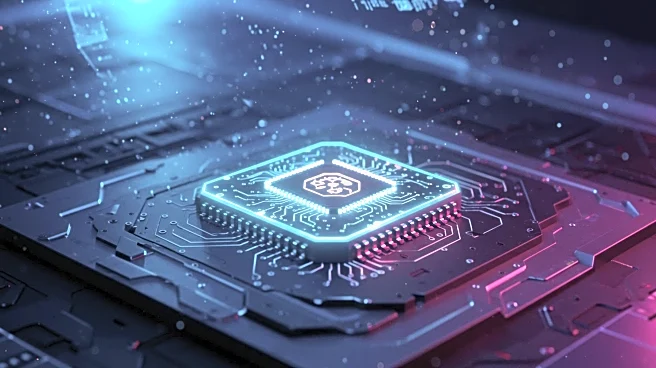What's Happening?
The manufacturing industry is increasingly recognizing cybersecurity as a critical risk, with 61% of cybersecurity professionals planning to adopt artificial intelligence (AI) within the next 12 months to address these threats. According to Rockwell Automation's 10th annual State of Smart Manufacturing Report, cybersecurity is identified as the second-highest external risk in manufacturing. The report, which surveyed over 1,500 manufacturing leaders from 17 countries, highlights the growing importance of cybersecurity skills, with 53% of large enterprises emphasizing their significance. The integration of information technology (IT) and operational technology (OT) is expanding the attack surface, making cybersecurity a boardroom concern. Stephen Ford, vice president and chief information security officer at Rockwell Automation, emphasized the need for modern security tools like AI to detect threats in real-time and maintain productivity.
Why It's Important?
The adoption of AI in cybersecurity is crucial for the manufacturing sector as it continues to digitalize and integrate IT and OT systems. This integration increases the risk of cyberattacks, which can disrupt operations and lead to significant financial losses. By leveraging AI, manufacturers can enhance their ability to detect and respond to threats, thereby safeguarding their operations and maintaining growth. The emphasis on cybersecurity skills also suggests a shift in workforce requirements, with companies potentially gaining competitive advantages through stronger security capabilities. As cybersecurity becomes a boardroom issue, it underscores the need for strategic investments in technology to protect against evolving threats.
What's Next?
Manufacturers are expected to continue integrating AI and machine learning into their cybersecurity strategies, with a focus on securing converged IT/OT architecture. This approach will likely involve leveraging existing data sources to drive protection and innovation. As the sector advances smart operations, the importance of robust cybersecurity measures will grow, prompting further investments in technology and skills development. Companies may also seek to enhance collaboration between IT and OT teams to address vulnerabilities and improve overall security posture.
Beyond the Headlines
The increasing focus on cybersecurity in manufacturing highlights broader implications for industry standards and regulatory compliance. As cyber threats evolve, manufacturers may face pressure to adhere to stricter security protocols and reporting requirements. This could lead to the development of new industry benchmarks and best practices, influencing how companies approach cybersecurity across different sectors. Additionally, the integration of AI in security measures may drive innovation in other areas of manufacturing, such as automation and data analytics.










